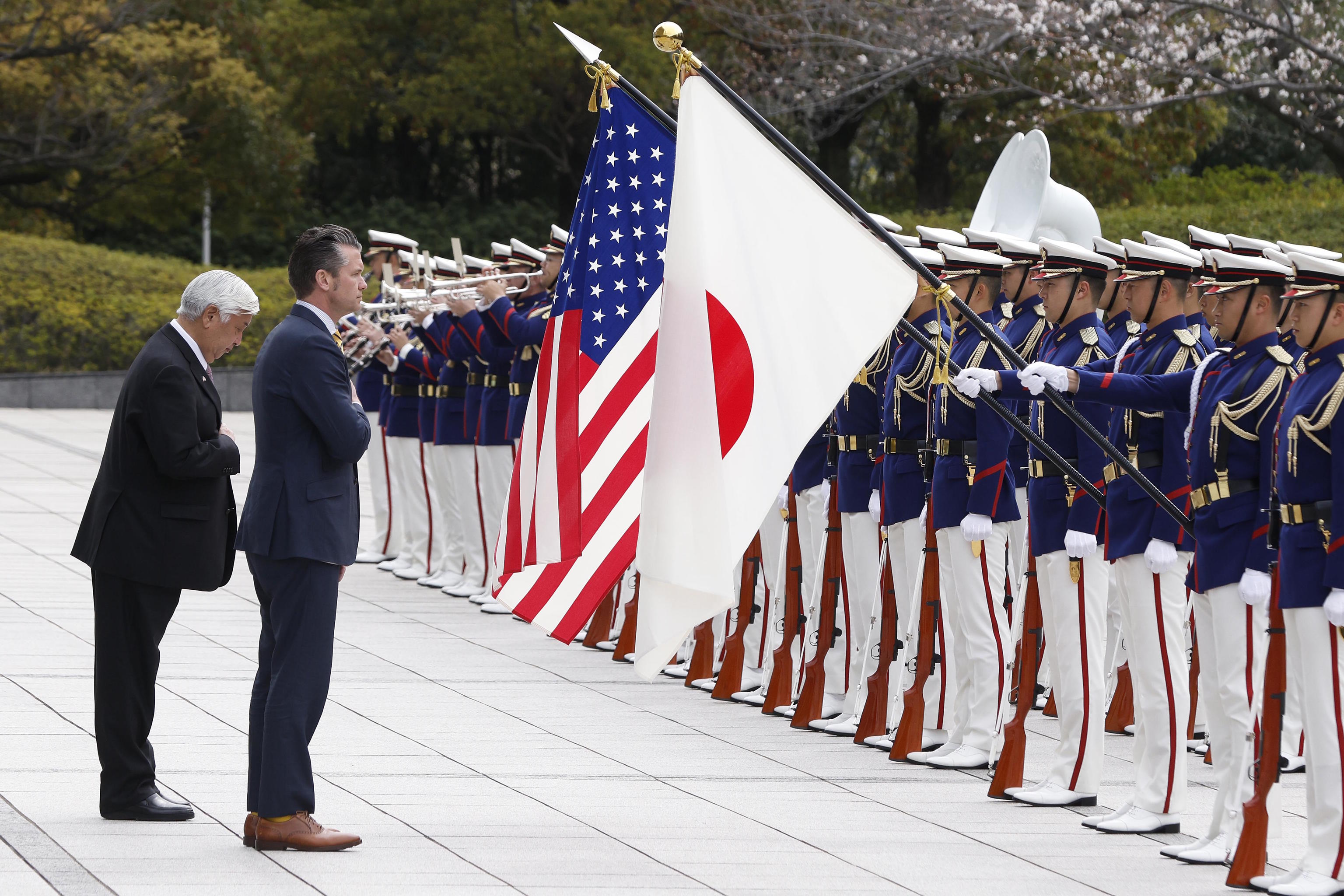Yonaguni is a small Japanese island that inspired the title of one of Puerto Rican Bad Bunny's super hits in reggaeton. But this Japanese treasure with crystal-clear sea and pristine beaches, which has direct views of Taiwan, has been in the news in recent days for another reason: a farm on the island has been replaced by a Japanese army training ground.
Yonaguni, home to just 1,500 people, has become a representative piece of Japan's rearmament, breaking away from the pacifist tradition inherited from the post-war era.
Turning towards the Southwest, just over 100 kilometers from Taiwan, the Japanese are militarizing some of their islands, deploying missile units in Yonaguni and the neighboring Ishigaki and Miyako.
Tokyo's leaders have long been concerned about China's increasing assertiveness in the region. But now they are also worried about the global diplomatic chaos caused by their traditional ally, United States, with a Donald Trump who is pressuring their Japanese partners. The Republican has publicly protested the lack of reciprocity in the security treaty signed in 1951 when Japan, occupied by U.S. troops, limited its military capacity - its army, which has 250,000 active personnel and another 60,000 in reserve, can only act for self-defense - following the defeat in the Second World War.
With 50,000 military personnel deployed across about twenty Japanese bases, Washington has sent Secretary of Defense Pete Hegseth to the Asian country to assess the state of this alliance between two Pacific powers amid the scandal over leaked details about U.S. military attacks in Yemen. Yesterday, Hegseth met with his Japanese counterpart, Gen Nakatani, reiterating his country's commitment to further strengthening the security alliance. "Japan is essential in facing Chinese aggression by helping Washington establish credible deterrence in the region, including the Taiwan Strait," said Trump's envoy.
After a stop in Philippines, another U.S. military partner, Hegseth also visited the remote Japanese island of Iwo Jima over the weekend to participate in the 80th-anniversary ceremony of a bloody battle on this stage between Americans and Japanese imperial troops. Over 30,000 soldiers from both sides died in this conflict. "The alliance between the United States and Japan shows that those brave individuals of 1945, enemies yesterday, have become friends today," declared Hegseth.
After 1945, Japan was the only country in the world to commit to enshrining in its Constitution a renunciation of participating in any war. However, faced with China's military expansion and North Korea's nuclear threat, the island nation launched a rearmament program in 2022, starting by increasing military spending from the 1% it had maintained since the 1960s to 2% of GDP over the following five years. This made Japan the world's third-largest military spender after the United States and China.
In the past month, Japanese media have revealed that, in addition to having its first aircraft carrier since World War II ready and purchasing U.S. F-35 fighters, the rearmament plan includes deploying long-range missiles on the southern island of Kyushu, a key strategic point to deter military pressure from Pyongyang and Beijing, as well as reinforcing defenses in the Okinawa archipelago, where most U.S. Marines in the country are stationed.
While during his February visit to Europe, when Hegseth reprimanded allies who relied too much on the U.S. for their defense, on his first official trip to Asia, the U.S. Secretary of Defense wanted to publicly convey the message that the U.S. remains committed to security. "What the Trump Administration will do is prioritize and move to this region of the world in an unprecedented way," Hegseth said this week in Manila, where he promised that his country would deploy more military assets, including a new anti-ship missile system.
Last week, after the European Union advanced its rearmament plans, defense companies in Japan and South Korea reached historic highs in the stock markets. For example, shares of Hanwha Aerospace, South Korea's largest artillery manufacturer, have risen by 134% this year, while those of Japanese Mitsubishi Heavy Industries have grown by 26%. Seoul is now among the top 10 arms exporters in the world, and Japanese companies, which have been out of the arms trade for decades due to the country's pacifist policy, are now reviving after Tokyo relaxed its arms export policy.
